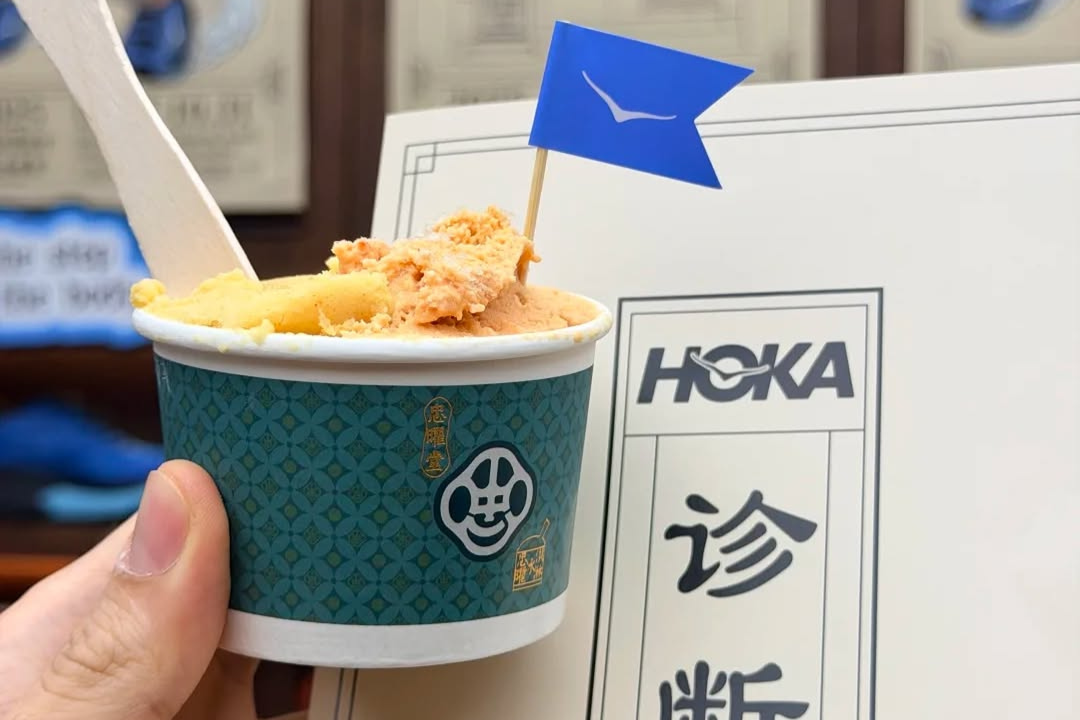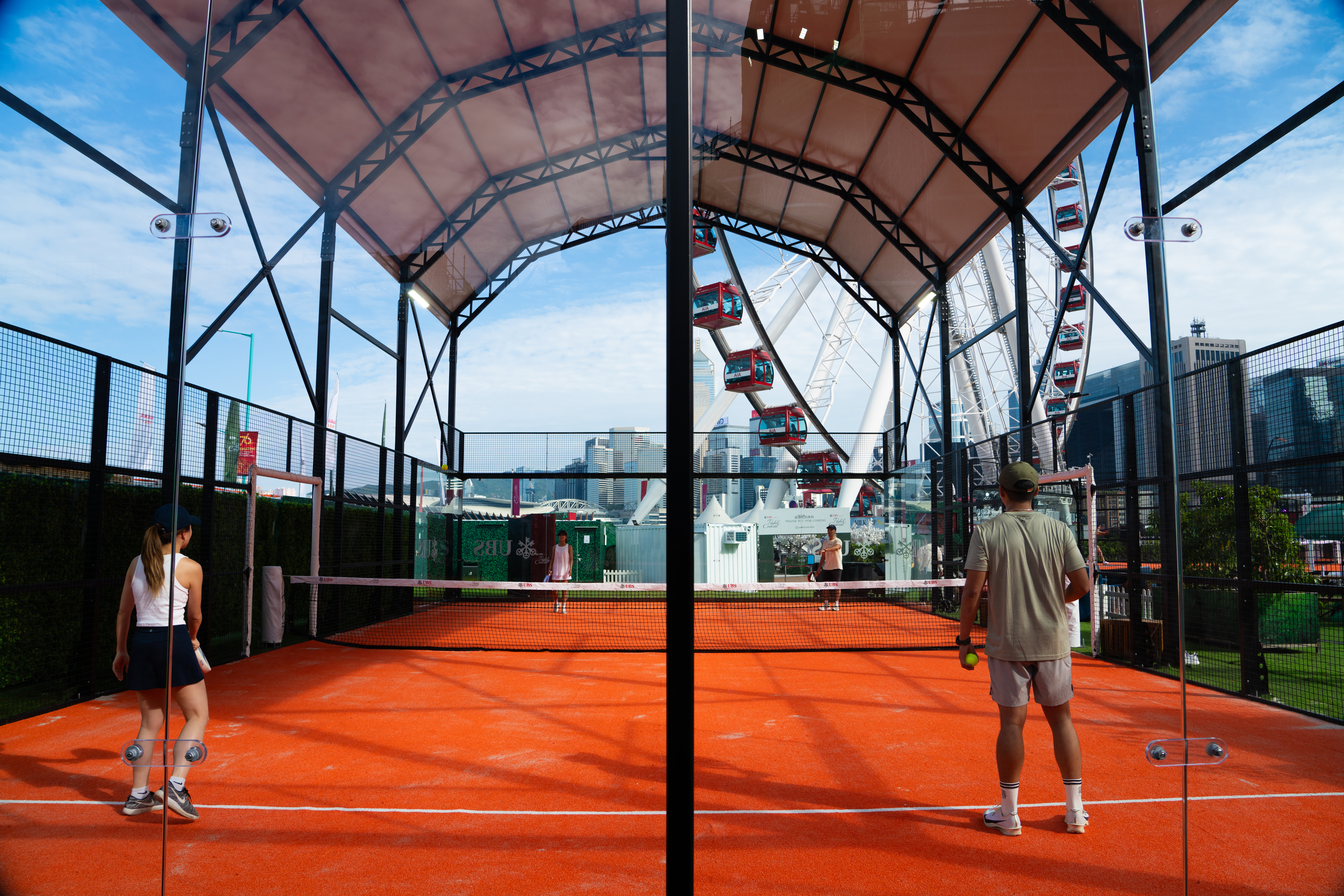This weekend sees “the world’s largest sporting and cultural event open to all”, the Gay Games, wrap up its tenth edition, Paris 2018, after ten days of sport, arts events, and parties. Making their debut at this year’s games were Team China, a group of 87 athletes from all across the country who are leaving France with 12 gold, 6 silver, and 7 bronze medals.
The Gay Games were founded in San Francisco in 1982 by Olympic decathlete Tom Waddell, and Chinese athletes have competed at previous Games, but previously only as individuals. Team China made the trip to represent their country this year despite a lack of official support (although the Chinese government still recognized the existence of the Games enough to complain about Taiwan being present as a country).
In October last year, it was announced that Hong Kong will host the 2022 Games, marking the event’s first time in Asia.
Here’s a little background on Paris 2018 from their mission statement:
Held every four years for more than 32 years, GAY GAMES, a hymn to love, advocates a society for all diversities. Paris is the perfect host to celebrate this 10th edition, which is expected 10,000 participants from over 80 countries! Supported by the highest French institutional and sporting bodies, PARIS 2018 prepares games celebrating diversity, respect, equality, solidarity and sharing.
Facing the world and the future, Paris and the Ile-de-France Region want to deliver GAY GAMES for the greatest number of people in the tradition of the spirit of Tom Waddell, its initiator, who dreamed of a world where the word equality would take its meaning, a world where the exclusion would no longer exist because of any difference.
Ahead of the closing ceremony, we spoke to Qiu Hua, the organizer who helped make Team China’s Gay Games debut a reality.
Video: The Paris 2018 Opening Ceremony; Team China enter around the 56:30 mark
RADII: You’re pretty much at the end of the Games now. What’s the experience been like for you?
Qiu Hua: It’s been great. We all had fun here. It’s the first time for all the team members so we’re discovering a lot of things, a lot of know-how about how people organize gay life outside of China. There’s been a lot of new things to observe, to learn. It’s a kind of culture shock, but for those who it’s their first time out of China, they’ve learned a lot of things. There’s been a lot of great experiences.
What specifically are some of the key things that the group will take away from participating in the Games?
You know, in China when we do sports we have very personal, private groups, but here everything is organized differently. In Paris, for all the sports and gay teams there’s a structure, but in China people are organizing based on one person — if this person is organizing things it will happen; if not, it disappears.
So in the very beginning [of trying to arrange a Team China for the Gay Games] it was very difficult to reach gay sports groups in China because there’s no public information or websites. The first year, I couldn’t find anybody. They exist, but if it was difficult for me to find them, then that means it’s also difficult for people who want to join and do sports. You have to know somebody and be in this circle.
This time when we come out, in France we’ve seen how easy it is to find these teams and groups. You can find something on the internet and communicate with the community — those type of things we’re now starting to discuss, how to organize events and groups like this [in China].

Members of Team China in Paris
The atmosphere must feel quite different too.
It’s totally different here. For Shanghai Pride, for example, we couldn’t have a proper parade in China. We are under pressure. But here, during the opening ceremony there are 10,000 people all cheering when we walk into the stadium. That feeling is… overwhelming, for all the members.
There are teams at the Games from all over the world. Have you had a chance to interact much with participants from other countries who may have faced similar issues to those from Team China?
Yes. We had a party last night for Asia at Gay Games, which Team China initiated, and we had nearly 1,000 people, a lot of people from different parts of the world. And during the Games themselves as well, we had a 4x100m relay team with American members, we had badminton doubles with a German player — so we’ve had a lot of different exchanges.
For most of our members, they feel the most pressure from their culture and from their families and I think we’ve found that all the Asian countries have similar feelings. They face the same pressures.
For non-Asian foreigners, they’re often interested to know how gays live in China — whether it’s fine to be gay, whether it’s legal or illegal. I think most of our team have been asked these kind of questions. But we had around 80 people participate in the Games and we marched in together openly, so I think this gave an impact to the people outside of China. People can see we have a lot of pressure but we can still have a very healthy and positive lifestyle. This is a big contrast — we have the pressure, but we can still have a very happy gay life. So I think it’s also a shock for some foreigners, for Westerners.

Team China representatives at the Gay Games Natatorium
I think that’s part of the reason that when Team China went past, everybody is applauding and cheering. For them, it’s important to know that within this very closed society we have a group of people who are having a good life.
It’s important for Team China to be here. We need to learn. And for others, they need to know Chinese gays are here. It’s an important message to spread.
How about spreading the message back home? Have you had much support or coverage from Chinese media at all?
From our side, I actually didn’t search for the media to do that because I think it should be for the media to come to us, because this is an important moment. Unfortunately, no Chinese language media contacted us. [State newspaper] People’s Daily contacted me, but it was the English version and they didn’t do anything in the end, there was no article.
But I think it’s most important for us to have fun here and for the team to enjoy themselves. Whether media comes or not, there’s positive energy here.
There have been people who have helped over the past three years, but maybe not all of them have stayed for those three years. I’ve had a lot of support from a lot of people so I can’t say I did this on my own. But in a sense, I also feel a bit lonely. Because we didn’t really form a team [for organizing].
The members come from all over China so it’s been hard to meet physically. This isn’t a majority Shanghai or a majority Beijing team; I think Shanghai has maybe only three or four members — the team really are from everywhere in China. But this has also caused problems because we could only communicate over the internet. It’s difficult.
I never did anything like this, so I don’t really know how to achieve these goals. We’ve all been learning.
Even so you’ve managed to get a Chinese team to the Games for the first time which is a great achievement. But are you disappointed about the lack of official support?
Actually, I had a principle right from the start that I didn’t want much sponsorship or financial support. I wanted people who love sport, who really wanted to come to the Games, not people who are just searching for money. Everybody knows we don’t have money, we have to do everything by ourselves.
I didn’t expect anything from outside and I didn’t ask. But Shanghai Pride were very supportive and I really appreciate their support. Actually it surprised me because I hadn’t sought it, but it reminded me that we can work together.
Related:
 “We Will Not Give Up”: China’s Biggest Pride Event Turns 10Article Jun 08, 2018
“We Will Not Give Up”: China’s Biggest Pride Event Turns 10Article Jun 08, 2018
I realise you’re getting ready for the closing ceremony at Paris and maybe therefore Hong Kong seems like quite a long way off, but do you see yourself continuing to the next Games?
The problem is that after these Games we’ll all disappear so I’ve been thinking about how we can keep these people together. We can’t restart all the procedures one more time next year. So what I’m thinking is we try to form a group and become a member of the Confederation of the Gay Games and for Hong Kong we will continue.
We want to help develop the LGBT sports community in China. We want to reach more people and to touch them. It’s not only Hong Kong, we want to stay and promote the Gay Games in Hong Kong and after.
—
All photos courtesy of Qiu Hua. More about the Gay Games Paris 2018 here.
You might also like:
 LGBT in China: Single Life, Family Life, and Changing CurrentsArticle Nov 09, 2017
LGBT in China: Single Life, Family Life, and Changing CurrentsArticle Nov 09, 2017
 WATCH: TechNode Video Shows How Live Streaming Can Be Used for LGBT ActivismArticle Dec 05, 2017
WATCH: TechNode Video Shows How Live Streaming Can Be Used for LGBT ActivismArticle Dec 05, 2017

















